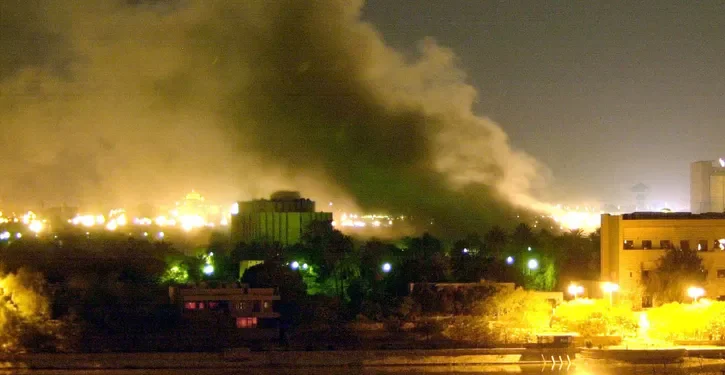In the annals of history, few events have reshaped geopolitics as dramatically as the fall of Baghdad in 2003. It marked the climax of the United States-led invasion of Iraq and the beginning of a tumultuous era in the Middle East. This watershed moment, characterized by controversy, chaos, and consequences, continues to reverberate across the region and the world.
The invasion, predicated on claims of Iraq possessing weapons of mass destruction (WMDs) and alleged connections to terrorism, was launched by a coalition of primarily Western powers, led by the United States and the United Kingdom. Baghdad, the capital of Iraq, fell to coalition forces on April 9, 2003, after just 21 days of military campaign. The iconic images of the Saddam Hussein statue being toppled in Firdos Square symbolized the apparent triumph of the invading forces.
However, the swift military victory gave way to a protracted and bloody insurgency, plunging Iraq into a quagmire of violence and instability. The post-invasion period witnessed widespread chaos, sectarian strife, and a breakdown of law and order. The removal of Saddam Hussein’s regime created a power vacuum, leading to competing factions vying for control and fueling sectarian tensions between the Sunni and Shia communities.
Moreover, the failure to uncover significant caches of WMDs undermined the initial rationale for the invasion, sparking international criticism and eroding trust in the coalition’s motives. The absence of a coherent post-war strategy further compounded the situation, exacerbating grievances and deepening the divide between different ethnic and religious groups.
The fall of Baghdad in 2003 also had profound implications for regional dynamics. It reshaped the balance of power in the Middle East, emboldening Iran and exacerbating Sunni-Shia tensions. The invasion provided fertile ground for the rise of extremist groups like al-Qaeda in Iraq, which later evolved into the Islamic State (ISIS), unleashing a wave of terror and destabilization across the region.
Furthermore, the aftermath of the invasion strained relations between the United States and its allies, with many questioning the wisdom and legitimacy of the intervention. The human cost of the conflict was immense, with hundreds of thousands of Iraqis losing their lives and millions more displaced from their homes.
In retrospect, the fall of Baghdad in 2003 stands as a cautionary tale of the perils of military intervention and the complexities of nation-building in the 21st century. It serves as a stark reminder of the unintended consequences of foreign policy decisions and the importance of robust diplomatic efforts in resolving conflicts. As Iraq continues to grapple with the legacy of the invasion, the events of 2003 loom large as a pivotal moment in modern history, shaping the trajectory of the Middle East and the world for years to come.



Recent Comments